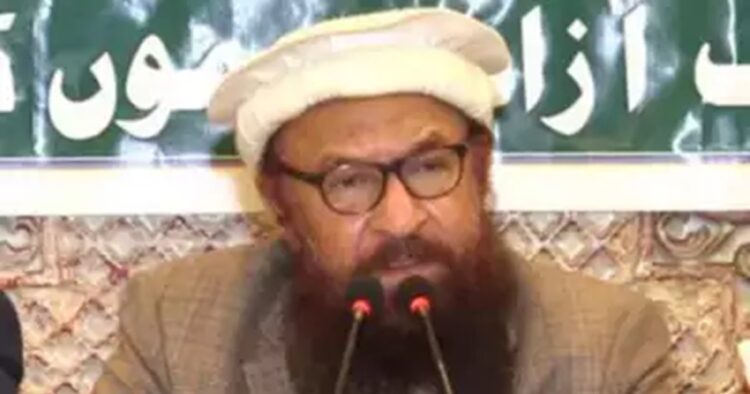Hafiz Abdul Rahman Makki, the deputy chief of the Pakistan-based terror group Lashkar-e-Taiba (LeT) and a central figure in the orchestration of the 2008 Mumbai terror attacks, has died at the age of 67. According to sources cited by India Today, Makki succumbed to a heart attack on the evening of December 27 while under medical care in a private hospital in Lahore.
Makki had been dealing with health complications for several days, primarily related to high blood sugar levels, which led to his hospitalization. His death marks the end of a significant chapter in the narrative of South Asian terrorism, given his deep involvement in some of the region’s most notorious attacks.
In May 2019, the Pakistani authorities arrested Makki, placing him under house arrest in Lahore, where he remained until his conviction in 2020. A Pakistani court found him guilty of terror financing and sentenced him to life imprisonment, highlighting his pivotal role in funding operations for LeT. The international community had also taken note of Makki’s activities; in January 2023, the United Nations Security Council (UNSC) officially labelled him a “global terrorist“, which intensified global scrutiny on his actions and those of LeT.
operatives, saw nine terrorists killed during the operation, with one, Amir Ajmal Kasab, being captured and later sentenced to death in India. His criminal activities extended beyond Mumbai. Makki was also linked to the Red Fort attack in December 2000, where six LeT members attacked the historic site in New Delhi, leading to a violent confrontation with security forces. Furthermore, Makki’s group was implicated in the assassination of Shujaat Bukhari, a prominent journalist and editor of Rising Kashmir, along with his two bodyguards in 2018, signalling the terror outfit’s reach into targeting influential voices.

















Comments